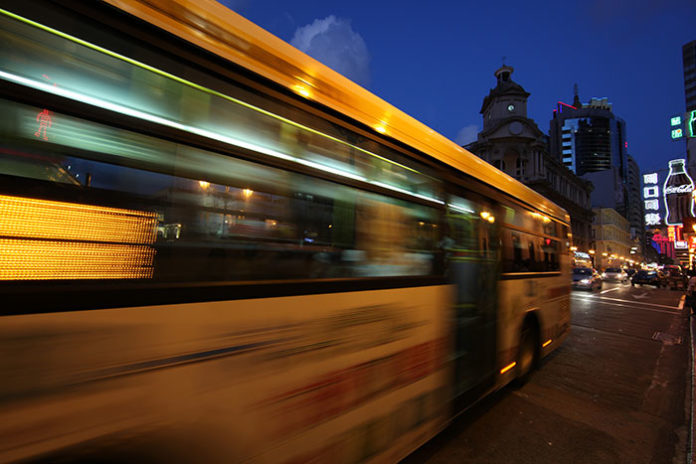Attending a ceremony recently organised by the Macau Federation of Trade Unions, a high-level representative of the central government in Macau surprisingly made remarks that the city’s largest labour group found hard to swallow.
Addressing the recent discussions on allowing non-resident workers to work as professional drivers in the territory, Yao Jian, Deputy Director of the Chinese Liaison Office in Macau, said that by end-December it was important to ensure the employment rights and career development of local workers.
“[But we] must allow more people to compete for the future of Macau because competition facilitates development,” he added. “For the future of Macau, [we] must make an appropriate opening and compromises [in the labour policies]; otherwise, there is no future for Macau.”
His comment goes like a laser to the strained relations between employers and employees in the city regarding the importation of non-resident workers, when the city is looking for more manpower to push forward its appropriate economic diversification.
All industries in the city are basically open to non-local workers, who make up nearly 30 per cent of the employed population, excluding those jobs reserved exclusively for casino croupiers and pit supervisors and commercial drivers. Amid highly vocal opposition from local workers, the business community has proposed for some time that such restrictions should be lifted for professional drivers to ease the labour shortage.
Lee In Leong, president of the Association of Direct Cargo and Passenger Transportation among China, Hong Kong and Macau, said there was a “severe shortage” of commercial drivers in the city, as not many locals were wiling to become drivers, especially in the logistics sector. “There are now 350 trucks catering cross-border logistics services in Macau but [we have] only about 100 drivers,” said Mr. Lee, whose
Association represents a group of logistic companies.
The efforts taken by some companies to pay as much as MOP35,000 (US$4,375) to hire a local truck driver were in vain due to the tight human resources market, he claimed. “The importation of non-resident drivers is only to recalibrate the supply and demand in the market,” he added.
Social harmony
Tong Chak Sam, chairman of the Macau Federation of Transportation, an affiliate of the city’s largest labour group, said that some companies could not recruit attract local workers with high pay cheques given the harsh nature of the job, namely long working hours and a below-average remuneration package. “Albeit offering an average salary level, some big companies here don’t have difficulty in recruiting drivers because they have a comprehensive remuneration package to entice local drivers,” he said.
The importation of non-local employees as drivers would dampen the employment and livelihood of low-skilled resident workers, Tong said, “endangering the harmony
of society.”
Over the past few years, the authorities have commissioned academic institutes to conduct three studies on the demand for commercial drivers. The results of the latest one completed last year reveal that 87 per cent of employers polled and 70 per cent of drivers acknowledge a shortage of commercial drivers in the logistics services sector.
However, 63.9 per cent of residents polled were still against the importation of foreign workers, regardless of the lack of locals to fill the driver positions, leading to the conclusion by the government that there was no consensus in society to introduce any policy changes.
The latest official figures show that the job vacancy rate in the land transportation industry – including bus drivers and truck drivers – stood at 13.5 per cent by the second quarter of 2016, one of the sectors with the highest vacancy rate.
Meddling in internal affairs
Mr. Yao’s comments were not received well here, adding further fuel to the ongoing wrangle between employers and employees. Pan-democrat legislator Antonio Ng Kuok Cheong criticised the Liaison Office for meddling in the internal affairs of Macau, when the local Administration has full autonomy over the city’s labour policy. “The remarks of the Liaison Office have only provoked new tensions in society,”
he lamented.
Under the ‘One Country, Two Systems’ formula Macau retains a high degree of autonomy to manage its internal affairs for at least 50 years after the handover in 1999, excluding matters of diplomacy and national defence, which are under the control of the central government.
Ng said the city’s labour policy “has been extremely open” with non-local staff constituting a significant portion in the city’s labour force. “The abundance of imported labour has suppressed the growth of salaries for locals [in some industries],” he opined, with many employers viewing non-resident workers as a money-saving option to man their operations.
“It’s time for Macau to discuss restricting [the number of] non-resident workers rather than making an opening to receive more imported labour,” he added.
Official data show the number of non-resident workers totalled 113,400 by the end of the third quarter of 2016, surging 79.1 per cent from 63,300 in 2010, against a 11.7 per cent growth of resident workers to 280,800 over the same time period. Currently, at least every one in four employees in Macau is non-resident vis-a-vis one in five workers in 2010.
Stepping back
Confronted by the democrats and local workers, the China’s Liaison Office here has attempted to soften the tone of Mr. Yao’s remarks. ‘The new industries in Macau – such as integrated tourism, characteristic financial industry, conventions and events, cultural creative industry and traditional Chinese medicine – will undergo rapid development [in the future] . . . as Macau pushes forward its economic diversification,’ the Office said in a press statement published a few days after the controversial comments.
‘Thus, there will be a big demand for high-quality, skilled manpower in different industries in the future,’ the statement read. It did not mention the further opening of the labour market, only acknowledging the efforts undertaken by the Macau Federation of Trade Unions in nurturing locals and safeguarding their jobs.
Following the visit of Chinese Premier Li Keqiang to the city last October, the local financial industry received a boost from Beijing, which hopes to groom the local financial leasing sector and the city’s role as an offshore renminbi clearing centre between Mainland China and Portuguese-speaking countries in order to facilitate the appropriate economic diversification of the city.
Some experts contend that the local financial industry might not have enough expertise to facilitate the latest development, requiring the importation of foreign financial professionals, namely from across the border.
Ella Lei Cheng I, legislator and vice president of the city’s largest labour union, thinks the priority is to offer training for local staff to prepare for the opportunities. Her group recently inked a co-operation protocol with the Macau Association of Banks to set up a regular communication channel in a bid to resolve any disagreement between the two sides and cultivate more local financial professionals.
Data talks
“A lack of guidelines for approving the quota of non-resident workers, a lack of transparency in the relevant data and inadequate supervision [by authorities] are some core reasons behind the ongoing controversies and dissatisfaction regarding imported labour,” she remarked.
Concerning guidelines released by the government in 2010 that mandates companies have a certain number of local workers before applying for the imported labour quota, the legislator commented that officials have never spelt out specific ratios between local and non-local employees in different industries. The authorities have so far only said the proportion of non-resident and resident workers in the construction industry is capped at 1:1, while there are no ratios for other sectors to adhere to.
“It’s difficult for society to judge whether the approvals [of quota for some companies] are reasonable – not only are the workers dissatisfied but also some companies from time to time, which do not understand why [their] applications are not approved,” she noted.
In bridging the divisive opinions between employers and employees on the matter, Ms. Lei believes the authorities have to enhance transparency regarding data on imported workers and the overall labour market.
Recognising the rights of local workers, Stanley Au Chong Kit – chairman of the Small and Medium Enterprises Association of Macau and founder of Macau-based lender Delta Asia Financial Group – emphasised that an appropriate importation of non-local workers could achieve “a win-win situation” for the community.
“Businessmen have obligations to ensure the income level of their workers whilst employees should allow the government to open up the labour market, permitting skilled non-resident employees to work in Macau . . . so that companies can have adequate human resources to staff their operations while the overall quality of workers could be enhanced,” he noted.
In response to the arguments regarding the possibility of importing non-resident commercial drivers, Chief Executive Fernando Chui Sai On said on a recent public occasion that the Administration has no intention to make any changes at the moment and highlighted the importance of studies of labour demand in the city.
“Whenever society is divided . . . it’s better for each side to have objective discussions in accordance with concrete data,” he advised.
Nearly 10,000 casino dealers in demand
There is a demand for nearly 10,000 dealers in the 2015-17 period in the gaming industry, according to figures compiled by the government-appointed Talent Development Committee.
The committee has conducted studies on manpower demand in the city’s five major economic sectors – gaming, retail, hotel, food and beverage, and conventions and events – since 2015. The latest results of their research completed last year show that the local gaming companies require more than 9,330 additional casino croupiers in the 2015-17 period, while nearly 4,500 dealer inspectors, pit supervisors and pit managers are needed by the casinos.
For the hotel industry, demand exists for more than 22,350 low-skilled jobs, such as room attendants and cleaners, the studies show, whilst nearly 2,700 positions are needed for the retail industry like sales assistants. The demand for low-skilled workers is also strong in the food and beverage sector, requiring over 12,670 staff.
























